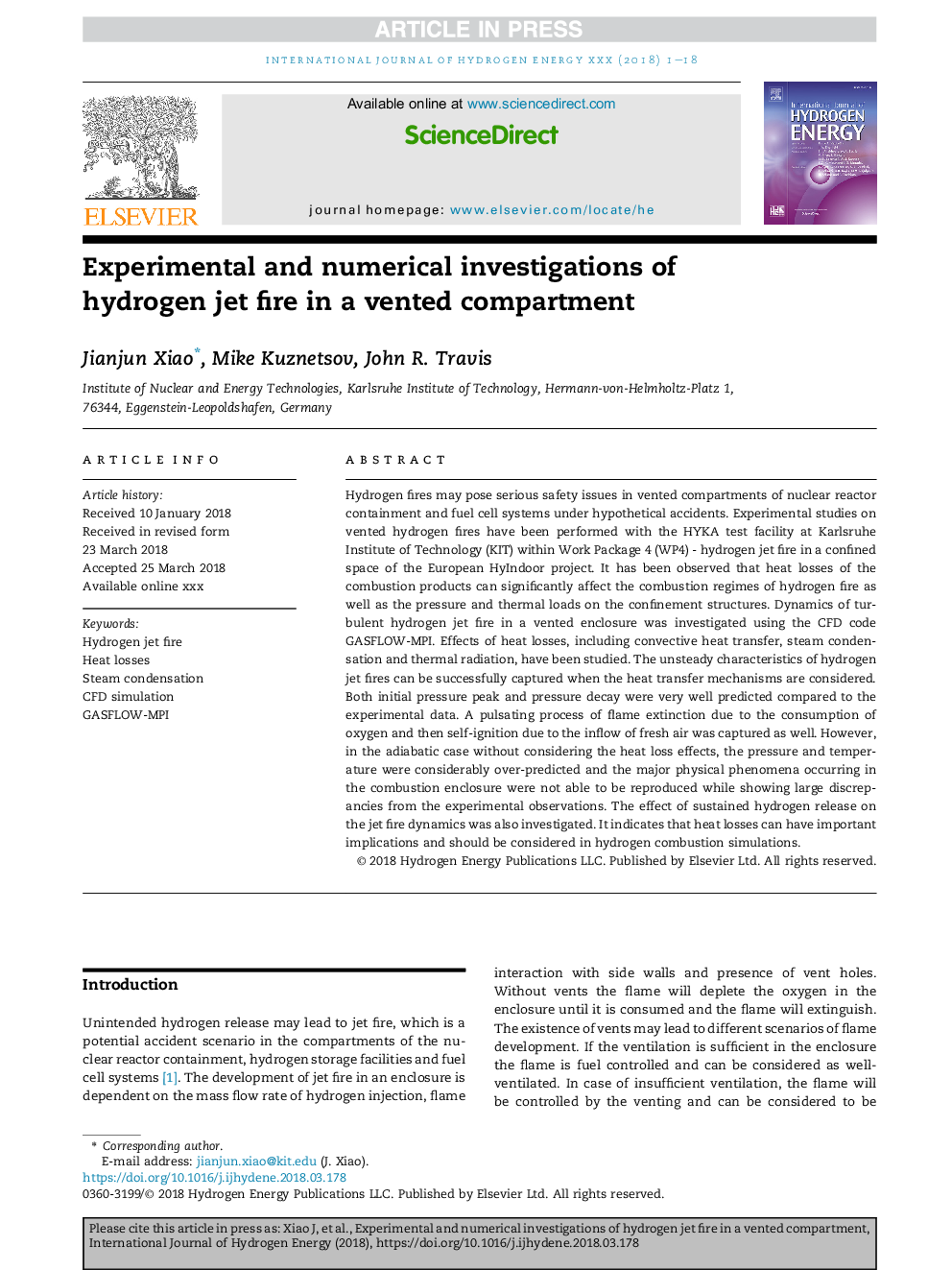| Article ID | Journal | Published Year | Pages | File Type |
|---|---|---|---|---|
| 7706039 | International Journal of Hydrogen Energy | 2018 | 18 Pages |
Abstract
Hydrogen fires may pose serious safety issues in vented compartments of nuclear reactor containment and fuel cell systems under hypothetical accidents. Experimental studies on vented hydrogen fires have been performed with the HYKA test facility at Karlsruhe Institute of Technology (KIT) within Work Package 4 (WP4) - hydrogen jet fire in a confined space of the European HyIndoor project. It has been observed that heat losses of the combustion products can significantly affect the combustion regimes of hydrogen fire as well as the pressure and thermal loads on the confinement structures. Dynamics of turbulent hydrogen jet fire in a vented enclosure was investigated using the CFD code GASFLOW-MPI. Effects of heat losses, including convective heat transfer, steam condensation and thermal radiation, have been studied. The unsteady characteristics of hydrogen jet fires can be successfully captured when the heat transfer mechanisms are considered. Both initial pressure peak and pressure decay were very well predicted compared to the experimental data. A pulsating process of flame extinction due to the consumption of oxygen and then self-ignition due to the inflow of fresh air was captured as well. However, in the adiabatic case without considering the heat loss effects, the pressure and temperature were considerably over-predicted and the major physical phenomena occurring in the combustion enclosure were not able to be reproduced while showing large discrepancies from the experimental observations. The effect of sustained hydrogen release on the jet fire dynamics was also investigated. It indicates that heat losses can have important implications and should be considered in hydrogen combustion simulations.
Related Topics
Physical Sciences and Engineering
Chemistry
Electrochemistry
Authors
Jianjun Xiao, Mike Kuznetsov, John R. Travis,
